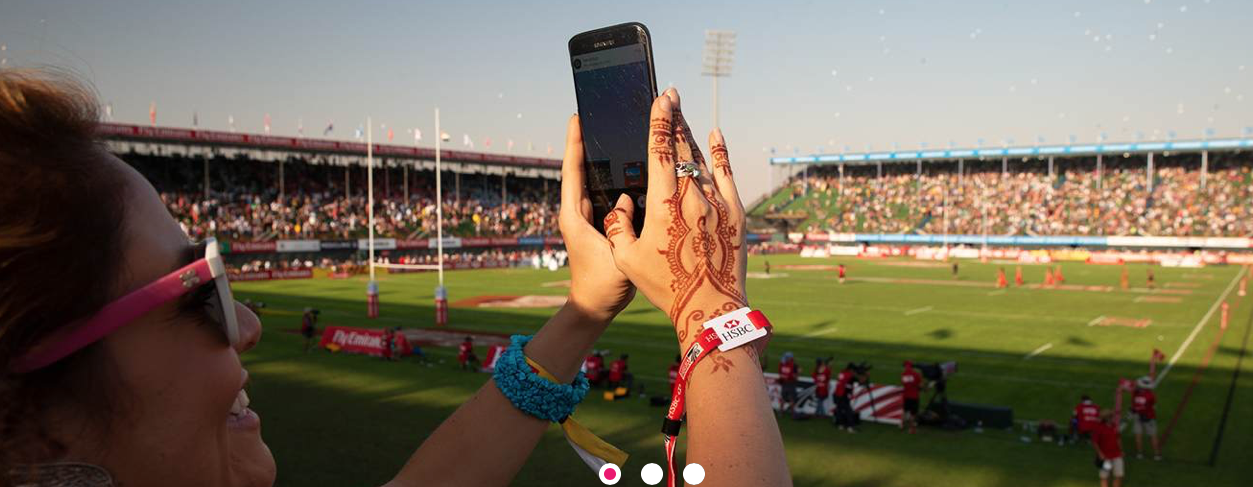- June 10, 2018
- Posted by: SportsV
- Categories: Case Studies, Featured Articles, Features, Home News, Industry News, Interviews, News

As the sporting world slowly comes to terms with the idea of cashless payments, tappit CEO, Jason Thomas, explains how they can enrich the fan experience, improve loyalty and boost revenue.
The inexorable march towards a cashless world can be seen everywhere you look. In the UK, retail card payments overtook cash payments in 2016. Music festivals have long espoused the benefits of cashless transactions, while improvements in wearable technology means people can now pay for a coffee with their watch. The sports world has been relatively slow to pick up, but we’re gradually seeing a move away from cash and towards the speed, security and convenience of cashless experiences.
A number of sports venues have already begun to phase in cashless payments, offering lessons for other stadia to follow. English Premier League team, Tottenham Hotspur, move into their new home next season. With more than 60 food and drink outlets, including the 65m Goal Line Bar (the longest bar in the UK) serving huge crowds of people within short bursts of time makes taking payments quickly is essential to keeping customers happy and loyal. It’s no surprise then that the stadium will be cashless.
And football [soccer] isn’t the only cashless game in town. Rugby may be one of the most popular (and bruising) contact sports but Twickenham Stadium’s introduction of contactless payment devices has ensured that scrums in the concourse are a thing of the past, cutting queue times and recording 33% of all takings via cards.[1] In Australia, the Adelaide Oval is a 100% cashless venue, providing a faster service for cricket and Aussie football supporters.
With transaction times around 20% quicker than traditional methods, the benefits are obvious. Reduced queuing times means happier fans and increased revenue. Statistics suggest cashless leads to a 15-30% increase in fan spend.
Yet these stadia are missing an open goal by using open-loop cashless systems – where individuals use bank-issued debit cards or credit cards to pay for goods. This means fans still have to carry wallets but, more importantly, means clubs are not in control of their own financial ecosystem and therefore they risk missing out on huge potential to grow revenue and offer an unbeatable fan experience.
Closing the loop
Closed-loop systems, where fans use a prepaid card or wristband provided by the club to purchase food and merchandise, are already in use at many German football clubs and offer considerable advantages over the traditional card payments.
This option not only reduces transaction times and cash handling, but enables clubs to gain invaluable payment and behavioral information on their fans, enabling the constant evolution of a better visitor experience. They can also be used as a loyalty programme to reward fans for their dedication and a single card can act as both season ticket and for payments.
And they can be utilised in different ways, from the corporate hospitality client who no longer has to sign every time they buy a drink, to the child whose parent loads their own card with some pocket money.
Once a closed-loop system has been implemented it creates a much better experience for the customer through shorter queues at the refreshment counter, resulting in more time socialising, spectating and creating memories. A customer can also budget for their spending while at an event by depositing a set amount. Permitting this level of control means happier, more loyal customers, leading to higher spend in the long-term.
The data that is gathered from closed-loop systems for sports stadia will become indispensable in monitoring customers’ individual spending patterns to tailor offers that cater for their personal needs. It is being used by football fans in places like Bayern München’s Allianz Arena and Bayer Leverkusen’s BayArena, helping create a bond like no other between fans and their team.
This approach has already been a success across different sports and set ups. The Emirates Airline Dubai Rugby 7s, which attracts 100,000 fans over three days, first went cashless in 2017 to enable 200,000 transactions over the course of the event with a 99.8% success rate.
Kevin Hodges, General Manager of Emirates Leisure Retail stated:
RFID systems and wristbands worked extremely well, and the back-end reporting and data provided was very informative and useful for planning our next event.
Post-match analysis
With continued repeat visitors, sports stadia are the ideal setting for implementing a bespoke payments setup. Quick, easy and secure methods, tailored with the ability to track spending, improves the fan experience at any event.
Cashless payments are a part of everyday life so it’s only natural that the matchday experience will follow suit. With a closed-loop cashless system, the fan experience is forever transformed, while increased revenues means that unlike in sport, there is always a win-win situation.

Author’s credits
Jason Thomas took over as Global CEO at tappit, a leading international provider of cashless experiences to sports events, festivals and other global entertainment venues, earlier this year. He is a board level commercial professional, with significant international experience and a proven track record of success in increasing company value, revenues and profits at all levels, specialising in business transformation and strategy implementation in disruptive technology, e-commerce, business intelligence and data driven industries.
Thomas is a highly-commercial and dynamic leader with experience of devising and implementing successful sales models, operational, account management and marketing strategies across international trading environments. His current and previous clients including MTV, Tesco, Wembley Stadium, Ministry of Defence, Universal, Warner Brothers, Orange, Time Out, NHS, Guardian Media Group, Live Nation, BAE Systems, AEG, Manchester City FC, TimeInc, The Football Association (The FA) and numerous national and international Government organisations.
If you’re involved in the provision of services, products or solutions or manage the Premium Seat and/or VIP Hospitality areas at a sports venue, then you should be attending the inaugural ALSD International conference and exhibition, Europe’s first Premium Seat event, which will focus on the latest innovations and trending topics, with a stellar speaker line-up to provide invaluable lessons on how to achieve success. Secure your place online at: www.ALSDInternational.com
#SportsVenueBusiness – keeping you in the know!


